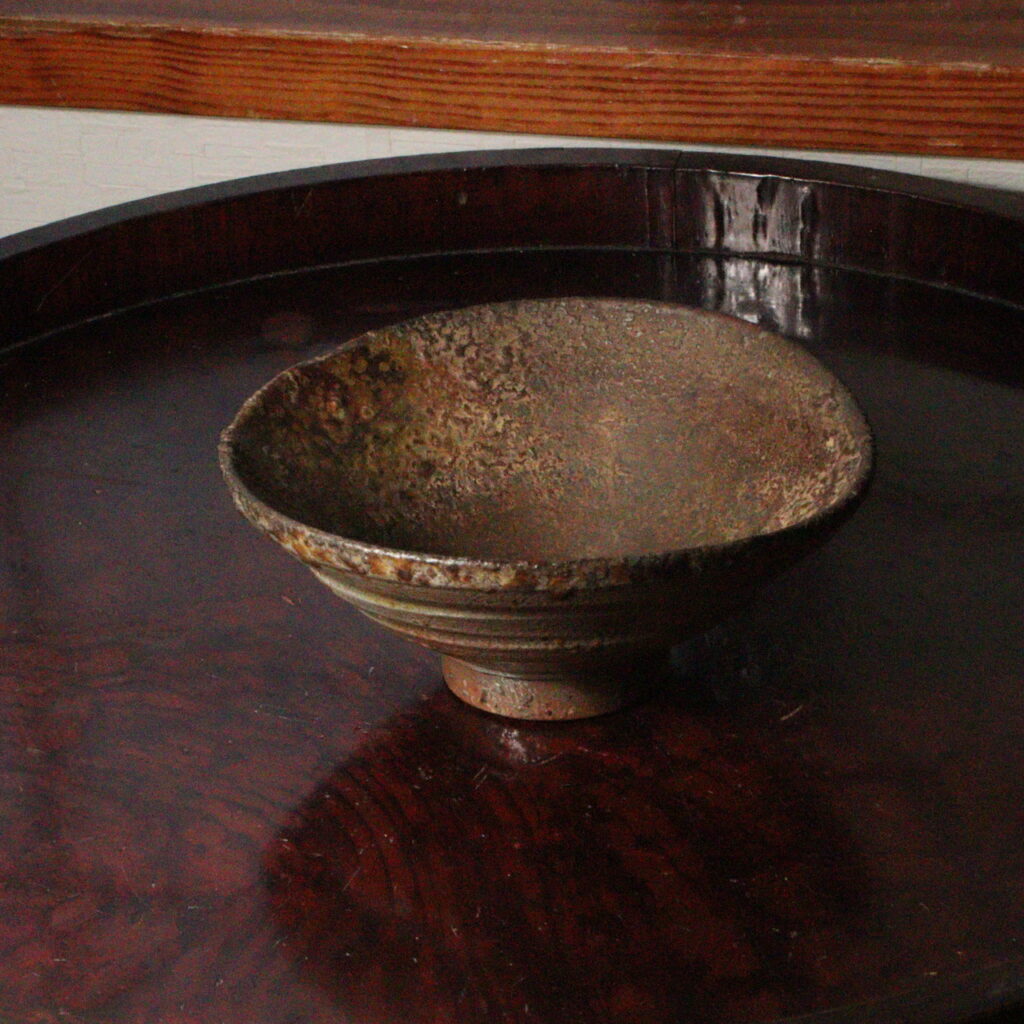
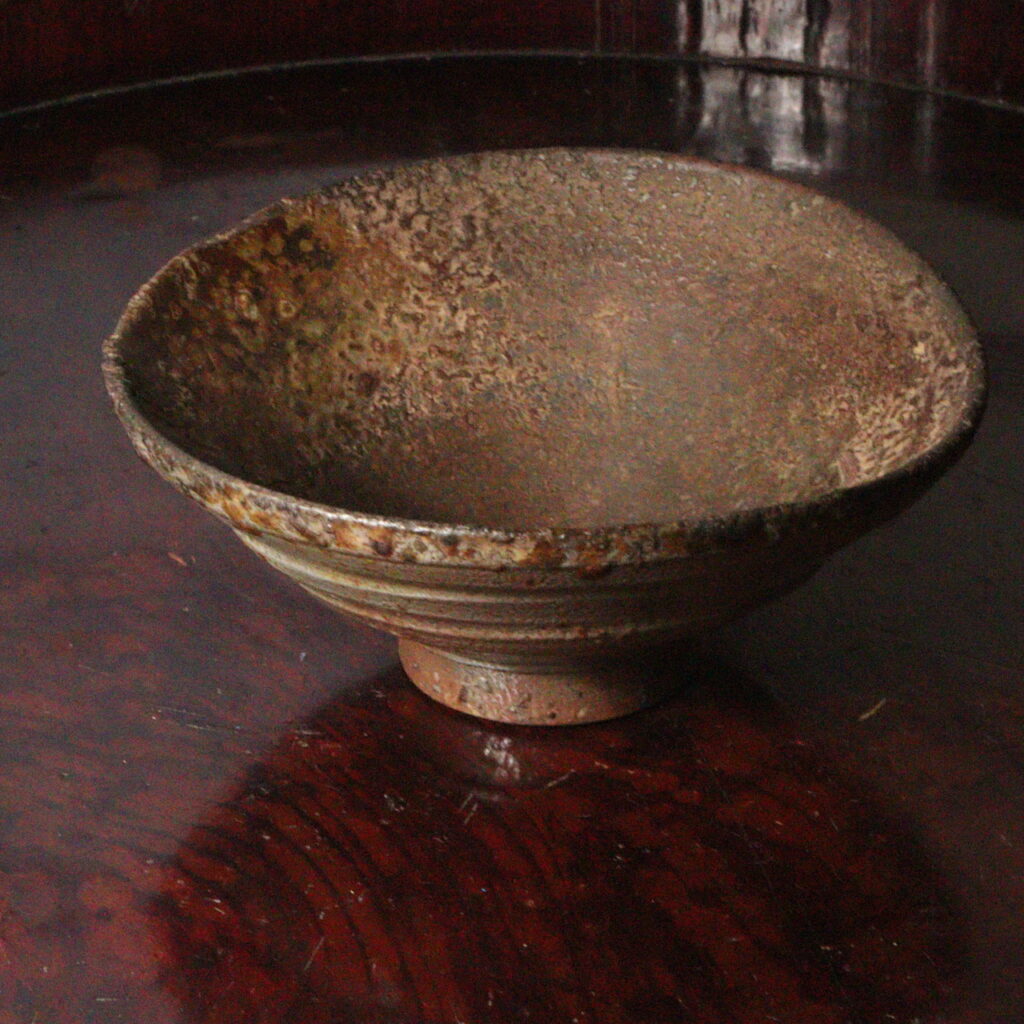
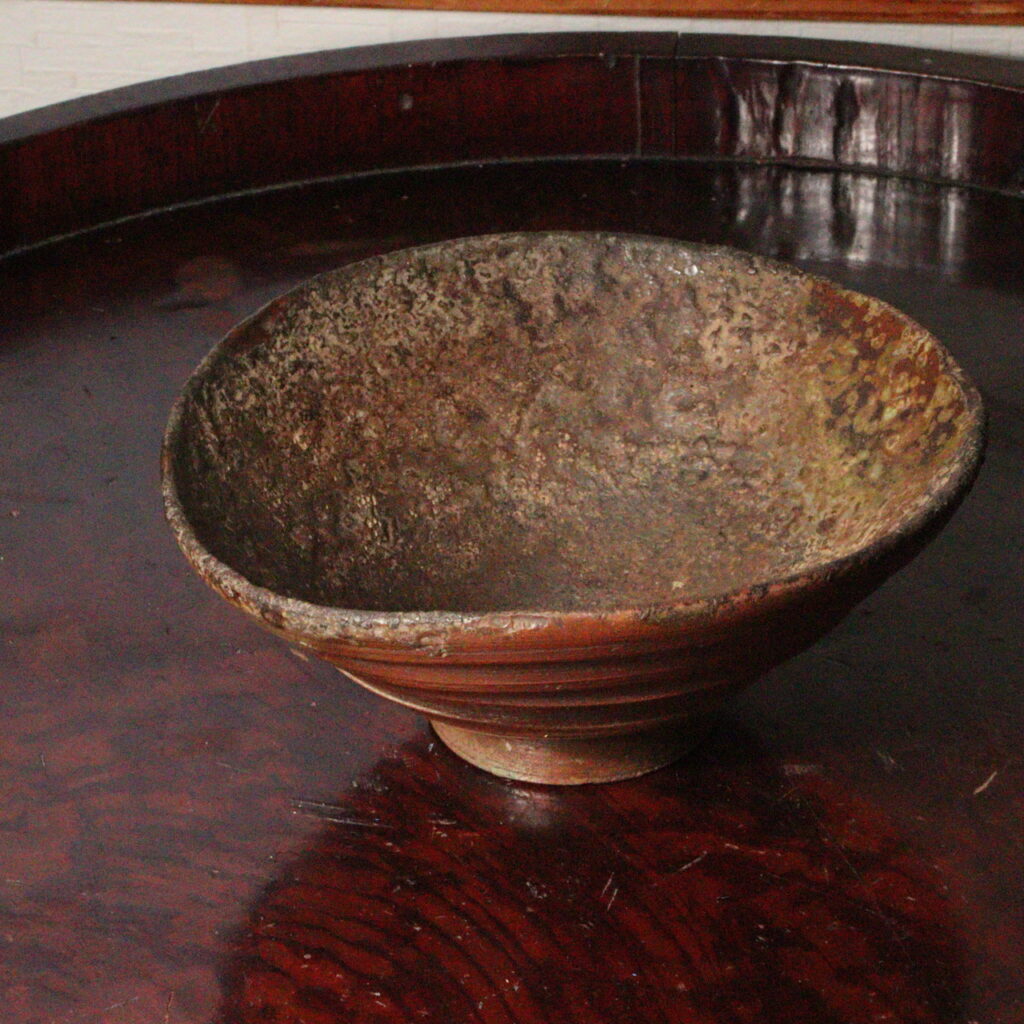
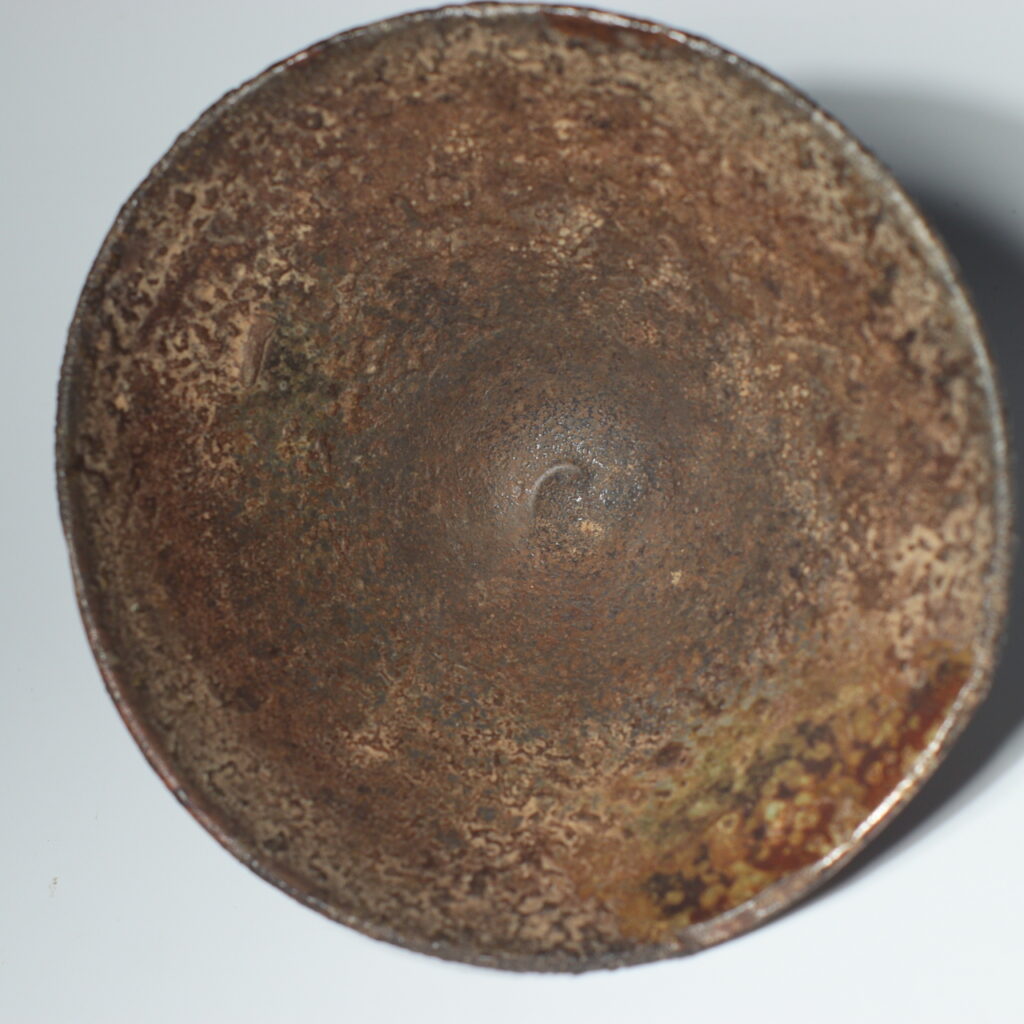
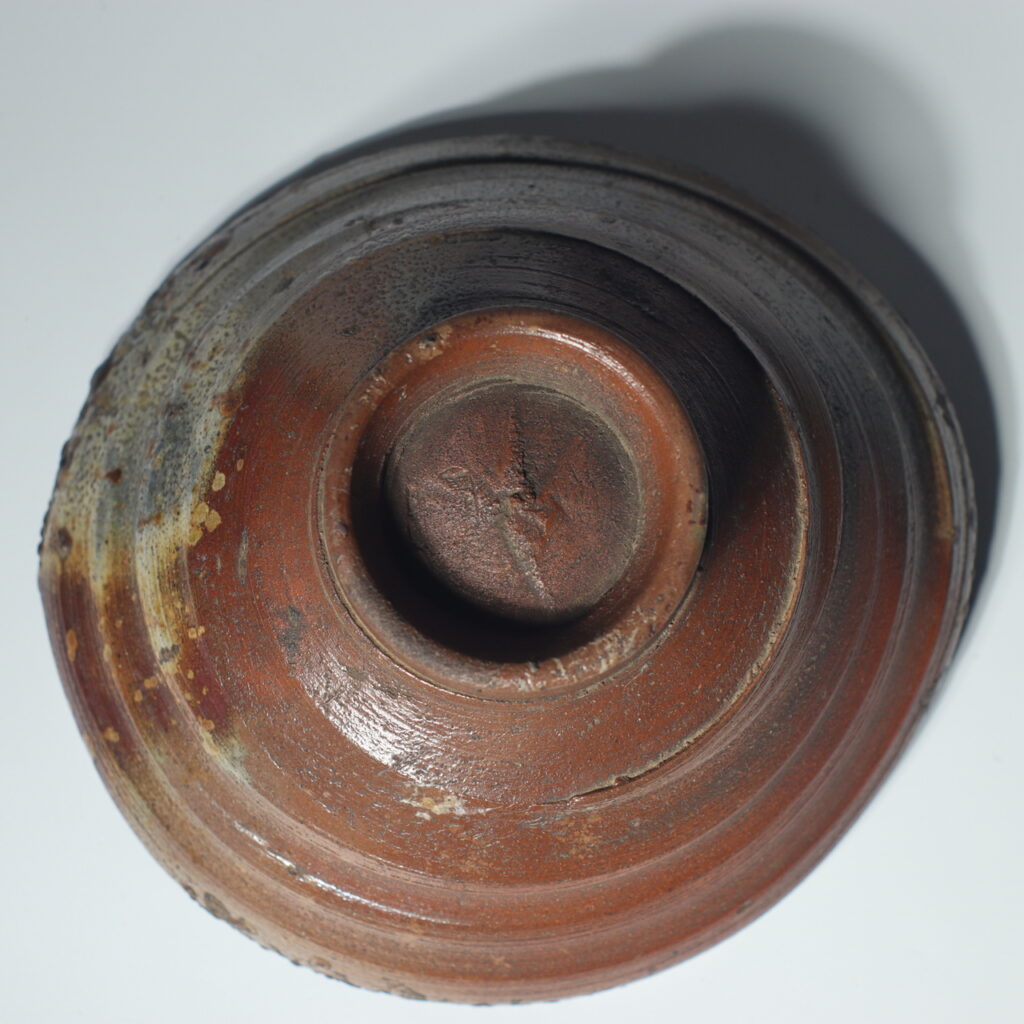
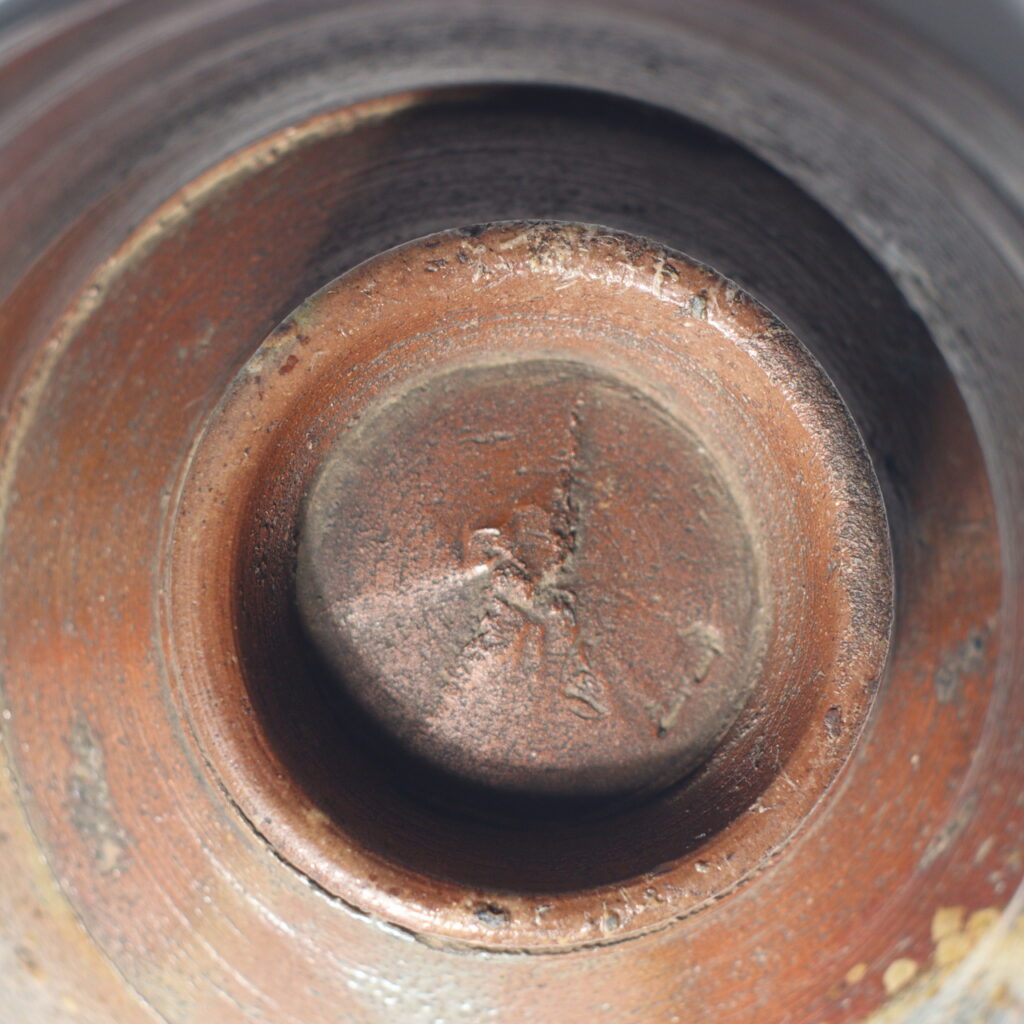
Early to Mid Edo Period Bizen Ware Chawan – A Rare Antique Japanese Tea Bowl
Introduction
In the world of Japanese antiques, few ceramic traditions are as revered as Bizen ware. Known for its earthy tones, natural firing effects, and deep connection to the tea ceremony, Bizen ceramics embody the essence of wabi-sabi—the Japanese philosophy of imperfection and impermanence. This Early to Mid Edo Period Bizen Ware Chawan (Ko-Bizen) is a remarkable and rare example, offering collectors a glimpse into centuries of cultural refinement and artistry.
The Story Behind This Item
Bizen ware (備前焼) traces its roots to Okayama Prefecture, where potters developed a distinctive method of firing unglazed stoneware. Unlike porcelain or glazed ceramics, Bizen pieces are transformed solely by fire, ash, and clay, making each piece unique.
By the Edo period (1603–1868), Bizen had become highly prized among tea masters, who valued its rustic simplicity and subtle kiln effects. This tea bowl reflects that era’s aesthetics: its natural textures, distortions, and patina carry both the raw power of the kiln and the quiet dignity of the Japanese tea ceremony.
The Charm and Highlights of This Piece
- Exquisite Aged Surface: The exterior carries a beautifully weathered patina, its rough yet refined surface resonating with the natural landscapes of Bizen.
- Rich Clay Signature: The base reveals the dense, iron-rich clay sourced from local rice paddies—an unmistakable hallmark of genuine Ko-Bizen ware.
- Masterful Form: Slight distortions in the wheel-thrown body not only add visual character but also enhance the tactile experience when drinking tea.
- Natural Kiln Effects: Ash deposits and subtle blue-gray patches—known as Ao-Bizen—emerge from the firing process, lending the piece depth and individuality.
- Refined Footring: The neatly carved circular line and central cut on the foot demonstrate the confidence and precision of an Edo-period artisan.
Value for International Collectors
For collectors outside Japan, Bizen ware represents one of the most authentic connections to traditional Japanese aesthetics. While other antiques—such as Meiji-era bronzes or ceramics restored with kintsugi—carry their own charm, Ko-Bizen ware is celebrated for its unglazed purity.
This chawan embodies the Zen ideal of beauty found in natural imperfection. Its presence on a collector’s shelf or within a tea practice not only enriches the space but also deepens the cultural and philosophical appreciation of Japanese art.
Conclusion
This Early to Mid Edo Period Bizen Ware Chawan stands as a rare and evocative example of Japan’s tea culture and ceramic tradition. More than just a vessel, it is a dialogue between clay, fire, and time—a true expression of wabi-sabi.
👉 View this item on Koedo Sun Art
If this piece is sold out, please explore our other curated collections here:
👉 Browse our collection of Japanese antiques